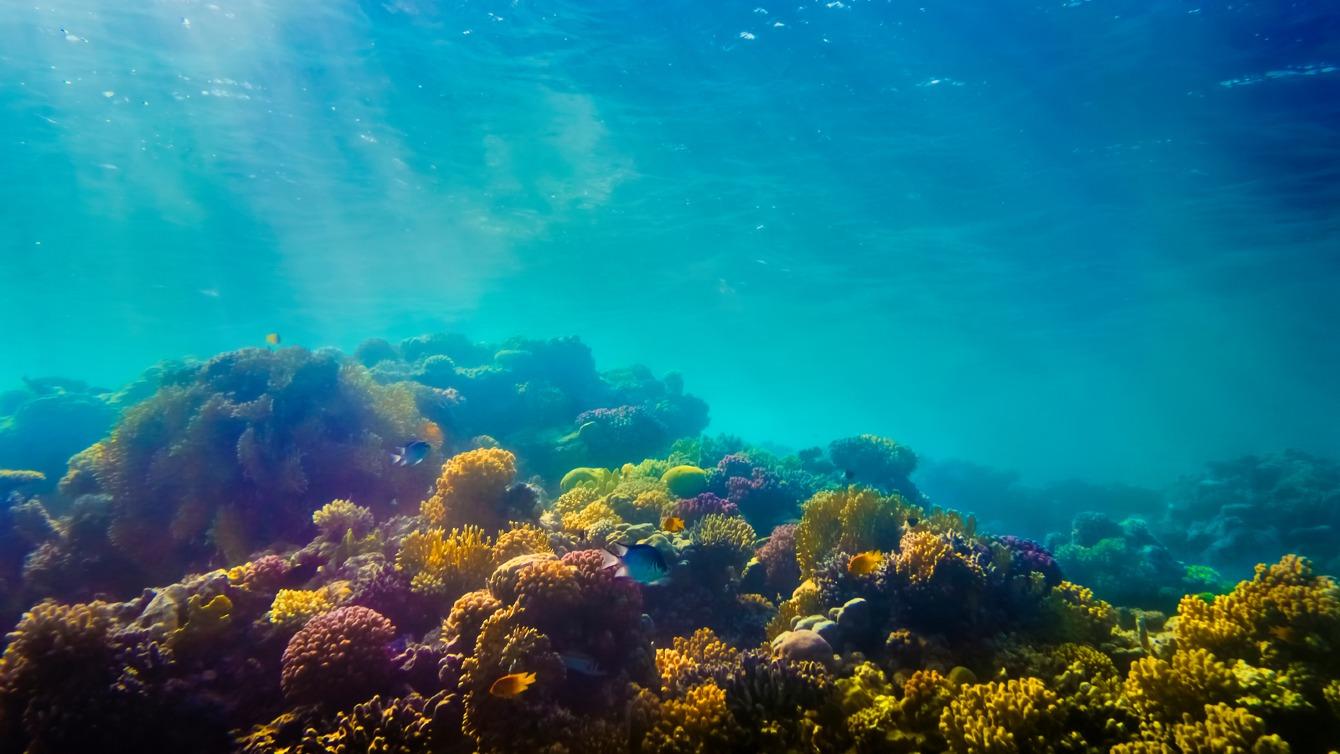"We have been careless with our ocean for a long time," Schraven begins. "Waste has been dumped into the ocean for a long time and continues to happen in some places, and there is a lot of pollution. We have also been using the resources from the ocean for many years. The ocean seemed like an inexhaustible source of income, especially for fishermen. For many people, the impact on marine life has remained out of sight. While the discussion about sustainability started and mainly concerned our society on land, the well-being of the ocean lagged behind in attention and urgency."
Ezrah Schraven is part of the Biodiversity & Nature team at PwC. As a specialist in marine resources, she closely monitors the global conference, but from the perspective of marine life. She states that the ocean has received little attention for a long time, partly because it is a distant concern for many people. "In our daily lives, we are rarely confronted with what is happening on and under the water. There is too little general knowledge about the connection between the quality of our daily lives and the role the ocean plays in it. We should treat our ocean with much more care."
Over half the world's GDP is highly or moderately dependent on nature
Decline in global wildlife populations since 1970
Share of the world's potential economic output lost due to land degration
Ecosystem services
During Cop16 in Cali, the focus is on biodiversity in the oceans. On this topic, we still know very little. 'The species richness in the ocean is immense, but the estimate is that we have only mapped about ten percent of it.'
The importance of (ocean)water goes far beyond just biodiversity, Schraven explains. 'A healthy ocean encompasses important ecosystems and plays a crucial role in our climate, weather patterns, and even the composition of the air we breathe. More than seventy percent of our planet is ocean. The role that oceans play is enormous. And despite their size, they are vulnerable and sensitive to human activities.'
A healthy ocean provides us with 'ecosystem services'; services that cost nothing (except for good care), but from which we benefit greatly. These services include food, materials for new medications, innovation, the absorption of CO2, and the regulation of temperature, even on land. The loss of these services brings enormous risks and costs, even from a business-economic perspective.
'Take coral reefs and mangroves, for example. Both serve as a nursery for the ocean and also as an important food source for marine life. They are therefore important for the fish population, which benefits the fishing industry. Mangroves and coral reefs also act as a natural buffer, providing protection to communities and businesses along the coast against waves, storms, erosion, and flooding. Without coral reefs and mangroves, both the fishing sector and coastal areas would face significant challenges.'

"As a leader in sustainable business practices, you are appealing to customers, it is a driver for innovation, helps with your existence, and increasingly also for financing opportunities."
Ezrah Schravenbiodiversity specialist, PwC the NetherlandsThe value of biodiversity and ecosystem services
When biodiversity disappears, you also lose the source for possible future innovation and medication. The value of biodiversity and ecosystem services is increasingly recognized and visible in legislation and regulations, such as within the CSRD E3. Although the regulation of marine life within Dutch companies is still often and wrongly considered 'not relevant'. But the topic is gaining momentum, and with that comes awareness and an increase in reporting by companies.
In CSRD sustainability reporting, the ESRS E3 standard (water and marine resources) specifically focuses on water management and the protection of marine resources, and requires companies to transparently report on their use and impact on water and marine ecosystems.
What does ESRS E3 entail?
ESRS E3 focuses on the sustainable use of water and the preservation of marine resources. The key elements of this measure are:
- Water consumption and efficiency: businesses must report their total water consumption, including where and how much water they extract from natural sources. The efficiency of water use is assessed, such as reducing water consumption in production processes and other activities.
- Impact on water quality: in addition to the quantity of water use, businesses must report on their impact on water quality, such as discharges of harmful substances, chemical pollution, wastewater management, and effects on nearby water bodies.
- Dependency on water sources: businesses must provide insight into their dependency on water and marine resources, both for their direct activities and within their supply chain. This also includes the risks they face in case of water scarcity or polluted water sources.
- Policy and strategies for water management: companies are required to report their policy measures for sustainable water management, including objectives for water conservation, pollution prevention, and protection of marine ecosystems.
- Risks and opportunities: organizations also need to identify the risks and opportunities arising from their water use and impact on marine resources. This may include physical risks such as drought or floods, as well as reputation risks due to negative environmental effects.
- Protection of marine ecosystems: ESRS E3 also emphasizes the protection of marine biodiversity and ecosystems, such as coastal waters, oceans, and other marine areas that are sensitive to pollution or overexploitation. Companies must report on how they protect these ecosystems or reduce their negative impact.
Companies are therefore responsible for reducing their impact on biodiversity. "This is not only important to the planet, but also essential for companies in the present, including their existence, which is increasingly dependent on their ecological footprint," says Schraven.
Opportunities for the business community
According to the biodiversity specialist, this challenge also presents opportunities. "For sure, because if you are a leader in sustainable business practices, you are attractive to customers, it drives innovation, helps with your existence and reputation, and increasingly also for financing opportunities. In short, it increases your resilience as a company."
Taking care the environment in a sustainable way also means that ecosystems can continue to provide the mentioned 'services', and sometimes these can even increase. Many industries depend on this supply. Think of more fish, clean water, clean air, a predictable climate, mild weather conditions, and little damage from disasters.
According to Schraven, expertise and caring about biodiversity are extremely important. "The more we understand biodiversity, the role of different species within ecosystems, and how this relates to everything that makes the Earth habitable, the better we can shape our societies and business operations in a way that is responsible for current and future generations."
Report ‘Biodiversity & Business’
Be inspired by best practices and start integrating biodiversity yourself


















